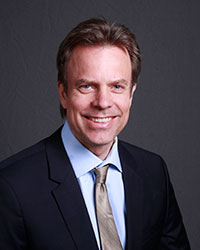Dr. Tobias Deuse Awarded 4-year NSF Grant to Study Effects of Aging Aboard ISS Using Novel Platform

 Cardiac and heart/lung transplant surgeon-scientist Tobias Deuse, M.D. has been awarded a 4-year $400K grant from the National Science Foundation (NSF) to investigate space-related physiological changes in liver aging and regeneration. The work will be carried out aboard the International Space Station (ISS) using a novel platform, tissue engineered liver immune chips in microgravity.
Cardiac and heart/lung transplant surgeon-scientist Tobias Deuse, M.D. has been awarded a 4-year $400K grant from the National Science Foundation (NSF) to investigate space-related physiological changes in liver aging and regeneration. The work will be carried out aboard the International Space Station (ISS) using a novel platform, tissue engineered liver immune chips in microgravity.
Dr. Deuse is Professor and Interim Chief of the Division of Adult Cardiothoracic Surgery, and Director of Minimally-Invasive Cardiac Surgery at UCSF. He is also a principal investigator in the Transplant and Stem Cell Immunobiology (TSI) lab. This work complements other research in the TSI lab funded by the National Aeronautics and Space Administration (NASA).
Project Summary
Aging is associated with impairment of the body's immune response. Each part of the immune system is influenced to some extent by the aging process. However, adaptive immunity, the immunity that allows us to eliminate disease producing agents (pathogens) or prevent their growth, seems more extensively affected. As a result, there is increased susceptibility to infection, poor responses to vaccination, and increased incidence of autoreactivity (immune responses directed against the body's own tissues). It is not known exactly what causes these observed changes, but an understanding of the possible causes is now beginning to emerge.
Many space-related physiological changes resemble those observed during aging. However, following microgravity exposure, such changes are more or less quickly restored after re-entry to Earth. This project aims to investigate the relationship between an individual's immune aging and healing outcomes, and to investigate the biology of aging from two directions--not only during its development in microgravity conditions but also during recovery.
Designed to work like human organs, tissue chips mimic living human tissues and cells. The investigators will use a tissue chip design that enables them to explore the relationship between liver aging and regeneration and immune responses and to look for possible ways to slow the aging process and enhance the liver healing process. Each immune system chip includes two types of cells: a specific type of immune cell and liver cells, which interact with the immune cells. By sending the chips into space, the investigators will be able simulate the aging process of the immune system and understand how it affects our liver's ability to repair itself as we grow older.
 This research is expected to provide new insights into the molecular basis for many human conditions, which in this particular project relates to how microgravity induces aging of the immune system that may lead to the development of novel therapies here on Earth.
This research is expected to provide new insights into the molecular basis for many human conditions, which in this particular project relates to how microgravity induces aging of the immune system that may lead to the development of novel therapies here on Earth.
In tandem with the scientific objectives, the project will work with the Space Sciences Laboratory at Berkeley to summarize how cell chips are plated and document each step of the space experience: from launch, to storage on the International Space Station (ISS), until sample return.
The results and the concept of cellular engineering will be disseminated to a broad audience through a suite of new online resources. The education goals include attracting students to the many STEM disciplines by engaging them with cutting-edge investigations on age-old, fascinating questions that include extending the human lifespan, and possible long-term human existence elsewhere beyond Earth and strengthening educators' and the public's support of this and other NSF-funded research by drawing in and connecting not only educators and students, but the general public to exciting medical research taking place aboard the ISS.
Read full abstract: "ISS: Tissue Engineered Liver Immune Chips in Microgravity as a Novel Platform to Study the Effect of Aging"
About the Transplant and Stem Cell Immunobiology (TSI) Lab
The Transplant and Stem Cell Immunobiology (TSI) Laboratory uses multiple research directions to answer complex questions about stem cell therapy, heart and lung transplantation, and cardiovascular disease. The laboratory focuses on the immunogenicity of allogeneic stem cells, tissues, and organs, and is interested in designing methods to prevent immunological recognition and rejection of such materials. The TSI Lab investigates mechanisms implicated in the development cardiovascular disease with the dual aims of prevention and cure, encompassing basic science (e.g. identifying novel molecules involved in pluripotent stem cell immunogenicity) to translational medicine (e.g. developing drugs that may be useful in reducing myointimal hyperplasia).
